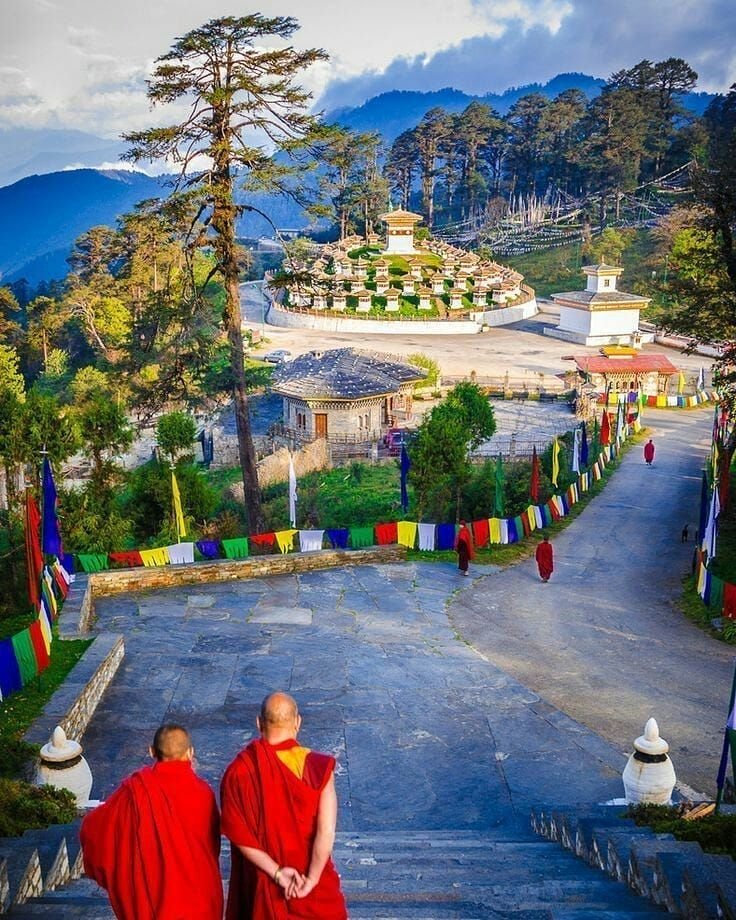Tourism Policy
Timeout Bhutan Travel – Your Best Travel Partner in Bhutan
Preserving Culture, Protecting Nature
Sustainable Tourism in Bhutan
The Tourism Policy of the Kingdom of Bhutan serves as a strategic framework guiding the development of the tourism sector. Rooted in the principles of sustainability and responsibility, its overarching objective is to cultivate high value, low volume tourism that fosters sustainable, competitive, and inclusive growth, thus enriching the nation’s progress.
Aligned with Bhutan’s holistic development philosophy of Gross National Happiness (GNH), the tourism policy emphasizes the promotion of tourism forms that resonate with the country’s cultural ethos and natural heritage. Central to this approach is the preservation of Bhutan’s pristine landscapes, rich cultural heritage, and core values, ensuring that tourism development respects and sustains these invaluable resources.
In embracing tourism as a supplementary income source for rural communities, rather than a replacement for their primary livelihoods, Bhutan seeks to empower these communities while safeguarding their traditional way of life. Emphasizing equitable growth and benefit sharing, tourism development is encouraged to extend across regions and seasons, promoting balanced regional and seasonal spread.
Bhutan’s distinctive tourism policy implements the “high value, low impact” tourism philosophy, limiting tourist numbers to protect the country’s cultural integrity and environmental health. The government mandates a daily “minimum daily package” for tourists, encompassing accommodation, transportation, and meals, ensuring fair distribution of tourism benefits and minimizing adverse environmental impacts.
Regulation of the tourism industry ensures alignment with Bhutan’s overarching development objectives. Tourists are encouraged to engage in cultural and environmental activities, fostering deeper connections with local communities and landscapes beyond mere sightseeing. Additionally, stringent measures, including a “no plastic policy,” are in place to mitigate the environmental footprint of tourism, promoting sustainable practices throughout the sector.
In essence, Bhutan’s tourism policy embodies a harmonious blend of economic progress and cultural preservation, underscoring the nation’s commitment to sustainable development and responsible tourism practices.
For further information: [Read More](https://www.tourism.gov.bt/announcements/visitor-questions-and-answers)

WHAT WE DO
- Customize Authentic vacations
- Go above and beyond
- Put your best interests first
- Expect exceptional reviews
- Value relationships
- Exceed expectations
- Find those hidden gems
WHAT WE DON'T DO
- We don’t customize Cookie-cutter travel
- We don’t sacrifice quality for profit
- We don’t overpromise
- We are not inflexible
- We are not the same as everyone else
- We don’t act closed-minded
- We don’t lack imagination
Latest Blogs
FAQs for Your Bhutan Tour Adventure
The currency of Bhutan is the Ngultrum (BTN). Indian Rupees are also accepted in Bhutan, but notes of 2,000, 500, and 200 are not commonly accepted. It’s advisable to carry cash, as ATMs might not be widely available, especially in rural areas, and not all places accept credit cards.
Bhutan is considered one of the safest countries for tourists.
It’s recommended to consult with a healthcare provider for vaccinations and health advice at least 4 to 6 weeks before your trip.
Respect local traditions and dress modestly, especially when visiting religious sites. Always ask permission before taking photographs of people or religious icons. It’s also customary to remove your shoes before entering temples and some homes.
Yes, attending a Tshechu (religious festival) is a highlight of visiting Bhutan.
Due to the limited number of tourists allowed to enter Bhutan and the need to arrange visas and travel permits, it’s advisable to plan your trip at least 3 to 6 months in advance, especially if you’re planning to visit during the high season or attend a popular festival.
Travel within Bhutan is usually arranged by your tour operator, including private vehicles for transportation between cities and to tourist sites. For trekking tours, transportation of equipment is typically handled by yaks or horses, with guides leading the way.
Contact Us
Don’t hesitate to contact us for any quotes or sample itineraries. We’re here, happy and ready to serve you in every way possible.
Follow Us
- Motithang: Thimphu
- +975 17 11 38 18
- timeoutbhutan@gmail.com
